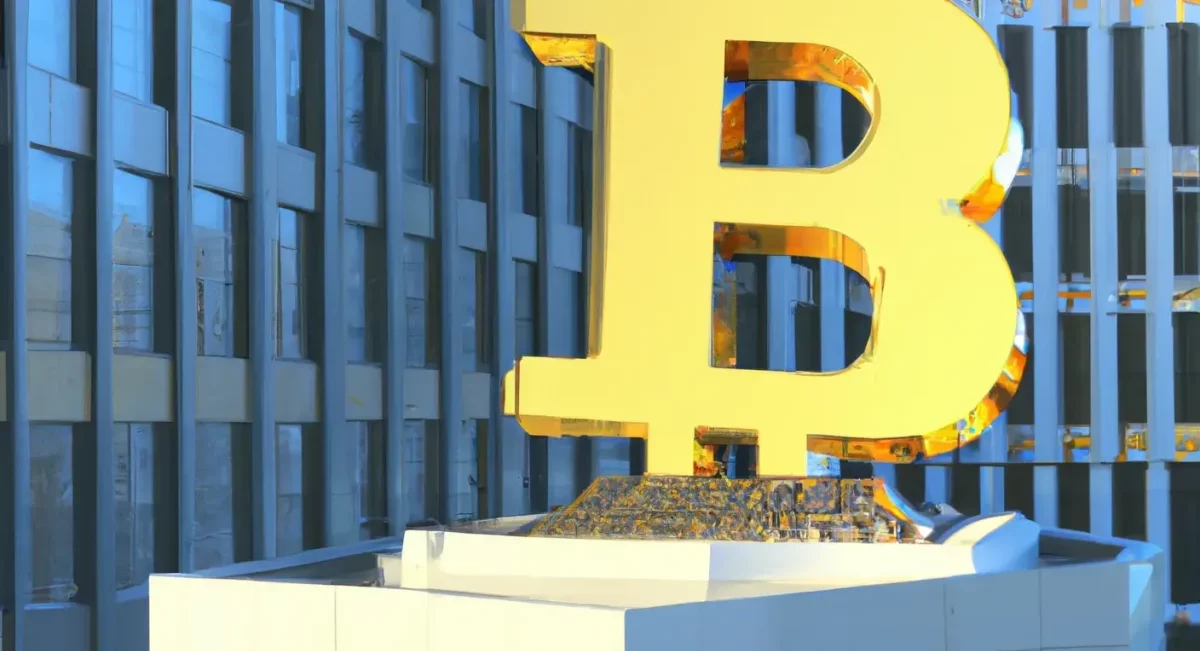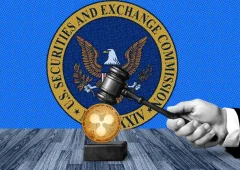U.S. State Proposes Allocating 10% of Public Funds to Bitcoin
19.03.2025 22:00 1 min. read Alexander Zdravkov
North Carolina is making a significant move towards adopting Bitcoin as part of its fiscal strategy with the introduction of SB327.
This bill allows the State Treasurer to invest up to 10% of the state’s public funds into Bitcoin (BTC) as a way to diversify and strengthen its reserves.
The bill comes with specific guidelines to ensure the safe management and transparency of the Bitcoin holdings. It mandates that the cryptocurrency be stored in multi-signature cold wallets for enhanced security.
Regular audits will be conducted monthly to maintain transparency and verify the holdings, reinforcing the state’s commitment to accountability. Furthermore, the sale of Bitcoin will be heavily restricted, only permitted in cases of dire financial need, and under strict guidelines.
READ MORE:

JUST IN: SEC to Drop Appeal Against Ripple
With SB327, North Carolina is joining a growing trend across the United States, where several states are looking into integrating Bitcoin into their financial frameworks.
This movement reflects the increasing interest in digital assets as a hedge against inflation and a step towards more diversified state reserves. The bill aligns with broader discussions on adopting crypto-friendly policies at the state and national levels.
-
1
Arthur Hayes Sees Trouble Ahead for Bitcoin as Global Tensions Rise
12.06.2025 21:00 2 min. read -
2
Why Michael Saylor Bet on Bitcoin During the COVID Cash Crisis
12.06.2025 19:00 2 min. read -
3
Nasdaq-Listed Mercurity Aims to Join Bitcoin Treasury Trend
13.06.2025 9:00 1 min. read -
4
Whale Leverages $30M on Bitcoin: Is a Parabolic Move Coming?
11.06.2025 21:00 1 min. read -
5
Pakistan Turns Unused Power Into Bitcoin and AI Infrastructure
13.06.2025 22:00 1 min. read
American State Bans Crypto Investments and Payments in Sweeping New Law
Connecticut has officially distanced itself from government adoption of digital assets like Bitcoin. On June 30, Governor Ned Lamont signed House Bill 7082 into law, placing sweeping restrictions on how the state and its agencies can engage with cryptocurrencies.
Strategy Boosts Bitcoin Holdings to 597,325 BTC with Latest Purchase
Bitcoin giant Strategy has added another 4,980 BTC to its reserves in a purchase worth approximately $531.9 million, according to Executive Chairman Michael Saylor.
Veteran Trader Peter Brandt Shares Simple Wealth Strategy with Bitcoin at Its Core
According to renowned market veteran Peter Brandt, trading isn’t the path to prosperity for the vast majority of people.
Why Bitcoin Is Stuck Despite Wall Street Demand
Charles Edwards, founder and CEO of Capriole Investments, has offered a fresh perspective on Bitcoin’s stalled price movement near the $100,000 mark, despite growing institutional enthusiasm.
-
1
Arthur Hayes Sees Trouble Ahead for Bitcoin as Global Tensions Rise
12.06.2025 21:00 2 min. read -
2
Why Michael Saylor Bet on Bitcoin During the COVID Cash Crisis
12.06.2025 19:00 2 min. read -
3
Nasdaq-Listed Mercurity Aims to Join Bitcoin Treasury Trend
13.06.2025 9:00 1 min. read -
4
Whale Leverages $30M on Bitcoin: Is a Parabolic Move Coming?
11.06.2025 21:00 1 min. read -
5
Pakistan Turns Unused Power Into Bitcoin and AI Infrastructure
13.06.2025 22:00 1 min. read

